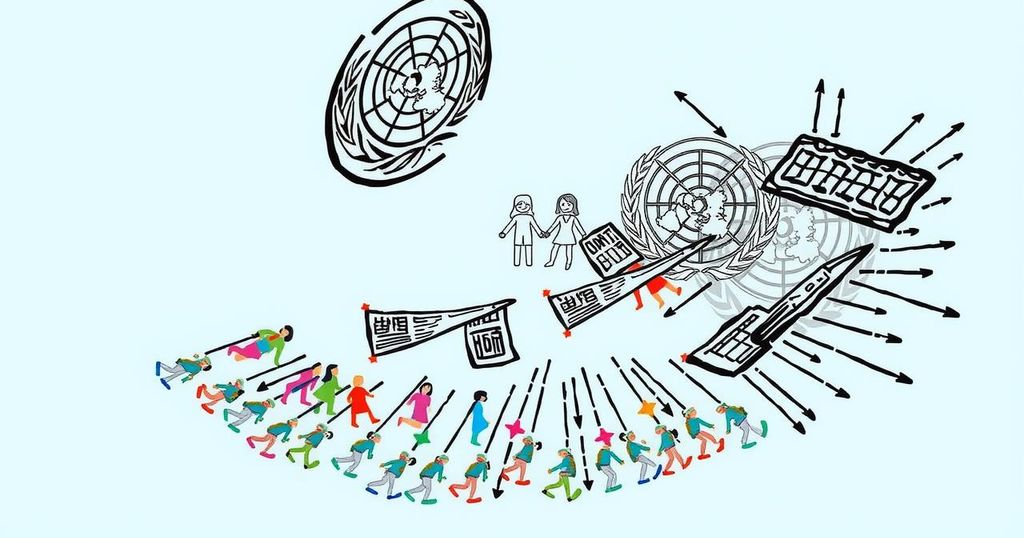Argentina’s Surprising UN Vote Against Ending Gender Violence Reflects Shift in Foreign Policy

Argentina, historically considered progressive, shocked the world by being the only country to vote ‘no’ on a UN resolution against gender violence. This reflects extreme shifts in foreign policy under President Javier Milei, who aligns more closely with conservative positions globally. His administration’s decisions, including withdrawing from international agreements, signal a departure from established social norms and may threaten decades of progress in gender equality.
In a shocking move, Argentina has become the sole nation to vote against a United Nations resolution condemning violence against women and girls. This decision, made during a UN session, surprised many observers who expected Argentina, known for its progressive social policies, to support the resolution. The vote reflects drastic shifts in foreign policy under President Javier Milei, whose far-right governance is increasingly aligning with ultra-conservative positions contrary to established international norms. Just prior to this UN vote, Milei’s administration withdrew from the climate summit in Baku, igniting fears he may abandon commitments from the Paris climate agreement, a move reminiscent of former U.S. President Donald Trump. Argentina’s sudden opposition at the UN stands in stark contrast to the collective agreement among G20 nations on gender equality, emphasizing Milei’s radical departure from the country’s historical stance on social issues. Critics, including members of Milei’s own coalition, took to social media to express their dismay, stating, “Argentina votes alone, against the rest of humanity.” This growing discontent signals intensified scrutiny of Milei’s administration as he embraces a contentious far-right agenda while dismantling institutions that protect women’s rights and environmental regulations. In the wake of rising inflation and economic instability, Milei received a mandate to reform the economy, but his aggressive ideological stance has led to international isolation and domestic discord. Recent personnel changes, such as the dismissal of Foreign Minister Diana Mondino, illustrate the administration’s commitment to weeding out dissenting voices within its ranks. The political landscape is increasingly polarized, reflecting the government’s staunch opposition to internationally recognized principles of gender equality and environmental protection.
Argentina has historically been viewed as one of the most progressive countries in Latin America, particularly regarding social issues. However, recent political developments under President Javier Milei have revealed a dramatic shift toward far-right policies that challenge established norms and agreements on women’s rights and climate action. Milei’s administration is reshaping Argentina’s foreign policy in accordance with other conservative leaders globally, raising questions about the country’s commitment to longstanding social gains that have been achieved over recent decades. The political repercussions of these changes are being keenly felt domestically and internationally as Milei pursues a radical libertarian agenda.
The recent UN vote against ending gender violence underscores a significant ideological shift in Argentina’s foreign policy under President Javier Milei. As Milei continues to dismantle previous protections and prioritize his radical agenda, the country risks isolation in the international arena. Critics are alarmed by the potential regression of Argentina’s social progress, fearing that the trajectory set by this administration may reverse decades of hard-won gains in gender equality and public health initiatives. This development serves as a wake-up call for supporters of these values both within Argentina and abroad, as they navigate the implications of this new political landscape.
Original Source: www.clickorlando.com







